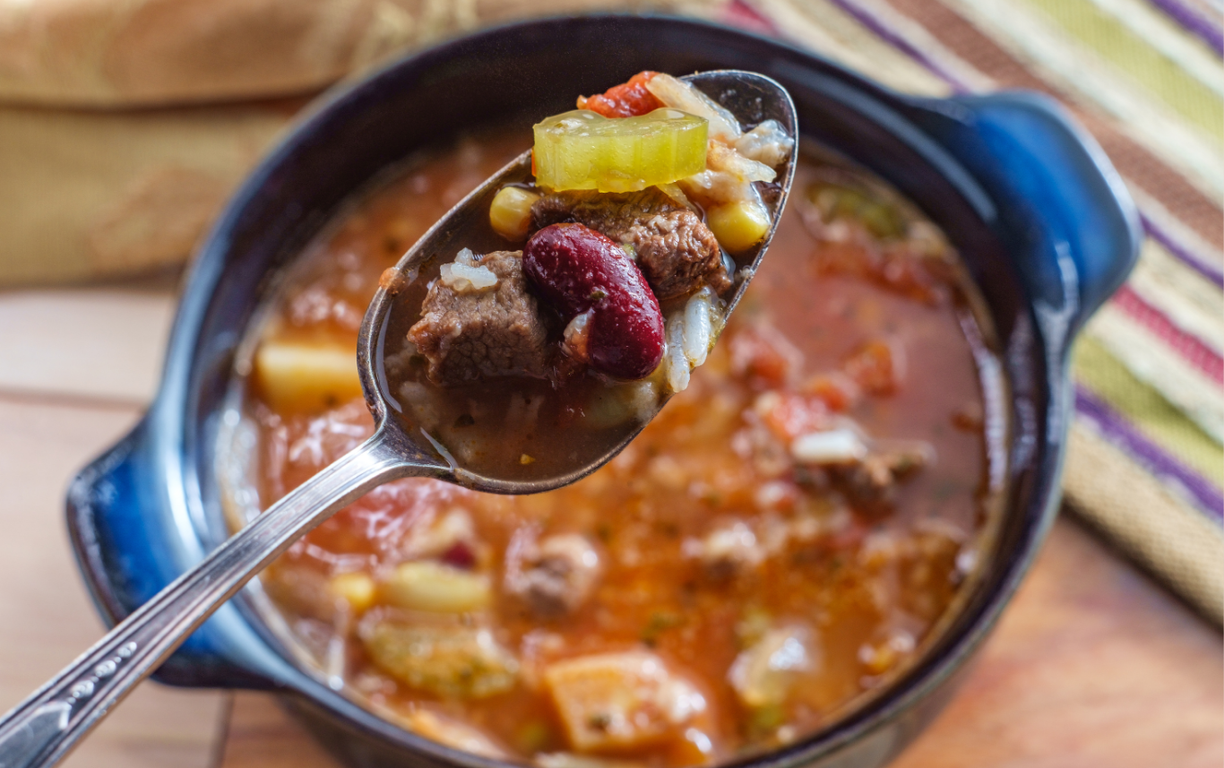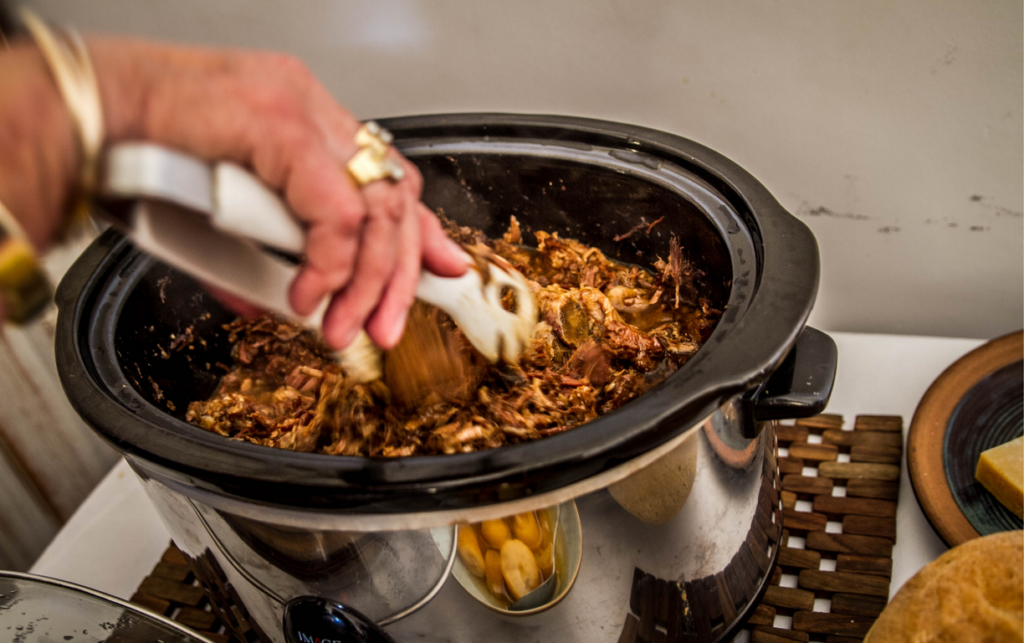Physical Address
304 North Cardinal St.
Dorchester Center, MA 02124
Physical Address
304 North Cardinal St.
Dorchester Center, MA 02124


If you’ve ever wondered when to pull out that trusty slow cooker, you’re not alone. This versatile kitchen appliance has a special place in many homes, offering convenience and delicious results. Whether you’re a busy parent or a meal prep enthusiast, knowing the right moments to use your slow cooker can transform your cooking routine.
Imagine coming home to the irresistible aroma of a hearty stew or tender pulled pork after a long day. Slow cookers excel at turning tough cuts of meat into melt-in-your-mouth meals while allowing flavors to meld beautifully. In this article, you’ll discover the best scenarios for using a slow cooker, ensuring you make the most of this culinary gem.
Slow cookers offer numerous advantages for effective meal preparation. Their ease of use and ability to enhance flavors make them an excellent choice for both busy lifestyles and culinary enthusiasts.
Convenience defines slow cookers. You can prepare ingredients in the morning, set the timer, and return home to a hot meal. This method saves time during busy weekdays and minimizes the need for constant monitoring. The ability to cook meals while focusing on other tasks allows for a more efficient kitchen experience. Additionally, slow cookers require minimal cleanup compared to traditional cooking methods.
Enhanced flavor development occurs when you use a slow cooker. The low and steady heat melds ingredients together, resulting in complex and rich flavors. This technique is particularly effective for tougher cuts of meat, which become tender and flavorful over long cooking periods. The gradual cooking process also allows spices and herbs to release their full potential, creating a dish that’s both satisfying and delicious.
Slow cookers shine in various scenarios, offering convenience and enhancing flavor. Identify when to utilize this appliance for optimal results.
Busy weekdays often leave little time for cooking. Use a slow cooker to prepare meals in advance, allowing you to focus on other tasks. Load the cooker with your ingredients in the morning, set it to low, and return home to a hot, ready meal. This approach not only eliminates the stress of last-minute cooking but also ensures you enjoy healthy, homemade dishes even on tight schedules.
Meal prepping and batch cooking benefit significantly from slow cookers. Prepare large quantities of soups, stews, or chili easily, allowing you to portion meals for the week ahead. Slow cooking enhances the flavors, resulting in dishes that taste even better after sitting in the refrigerator for a few days. Store your cooked meals in airtight containers for quick reheating and serve them on busy days, saving time and effort while maintaining nutritious options.
Slow cookers excel in transforming ordinary ingredients into satisfying, flavorful meals. The following dishes showcase the best uses of this versatile appliance.
Soups and stews thrive in slow cookers. The gentle heat allows flavors to deepen and meld over hours of cooking. Ingredients like vegetables, beans, and grains absorb seasonings, creating rich, hearty dishes. For example, a classic chicken noodle soup develops a robust taste when simmered throughout the day. Hearty beef stews become tender and flavorful, making perfect comfort food for any occasion.
Tender cuts of meat benefit significantly from slow cooking. The prolonged cooking time breaks down tough connective tissues, resulting in juicy, fork-tender meats. For instance, beef chuck roast becomes delectable after several hours in a slow cooker, while pulled pork achieves its signature texture and flavor through gradual cooking. Other meats, like chicken thighs or lamb shanks, also showcase enhanced flavors and tenderness, making them ideal for your slow cooker recipes.
Successful slow cooking hinges on selecting the right ingredients and understanding cooking times and temperatures. Follow these guidelines for the best results.
Choosing quality ingredients enhances the outcome of your slow-cooked meals. Opt for tougher cuts of meat, like beef chuck or pork shoulder, which become tender over long cooking times. Use fresh vegetables, such as carrots, potatoes, and onions, as they withstand slow cooking well. Include herbs and spices for flavor depth; consider bay leaves, thyme, and garlic for robust profiles. Avoid ingredients that can break down easily, like delicate greens or seafood, as they won’t retain their texture during prolonged cooking.
Cooking times and temperatures directly influence meal quality. Set slow cookers to low for 6-8 hours or high for 3-4 hours, depending on your schedule. Remember, longer cooking times develop richer flavors. Monitor your dishes; most recipes specify appropriate times for optimal results. Adjustments might be necessary based on the size and type of ingredients. Use a meat thermometer to ensure meats reach safe internal temperatures, typically 145°F for pork and 165°F for poultry, preventing any food safety concerns.
Using a slow cooker can transform your meal preparation and cooking experience. Whether you’re juggling a busy schedule or simply want to enjoy flavorful, home-cooked meals with minimal effort, this appliance is a game changer.
By understanding the best times to utilize your slow cooker, you can create delicious soups, stews, and tender meats that make weeknight dinners a breeze. Embrace the convenience of meal prepping and batch cooking to ensure you always have nutritious options on hand.
With the right ingredients and a bit of planning, you’ll enjoy the rich flavors and tender textures that only slow cooking can provide. So go ahead and make the most of your slow cooker—your taste buds will thank you.

Slow cookers are convenient for busy individuals, allowing for easy meal prep. They save time by requiring minimal supervision and cleanup. Slow cooking enhances flavor development, making meals tastier, especially for tougher cuts of meat.
Soups, stews, and tender cuts of meat are perfect for slow cooking. Dishes like chicken noodle soup, beef stews, pulled pork, and lamb shanks come out flavorful and tender, benefiting from the long cooking time.
Absolutely! Slow cookers are perfect for meal prepping. You can prepare large quantities of soups, stews, or chili, which taste even better after sitting in the refrigerator and can be quickly reheated for busy days.
For best results, use the low setting for 6-8 hours or the high setting for 3-4 hours. Cooking time may vary based on the recipe, so be sure to check for doneness.
Avoid delicate ingredients that won’t hold up during long cooking times, such as certain vegetables like zucchini or fresh herbs. Instead, focus on tougher cuts of meat and hearty vegetables.
No, one of the advantages of slow cookers is minimal cleanup. Just place your ingredients in the pot, set the timer, and once done, you’ll typically only have the slow cooker pot to clean.
Slow cooking allows flavors to meld and deepen over time. This method is particularly effective for enhancing the richness of dishes, resulting in complex flavors that are often hard to achieve with quicker cooking methods.
Yes, slow cookers are designed for long cooking times, making them safe to leave on all day. Just ensure you follow the recommended cooking times and settings for food safety.